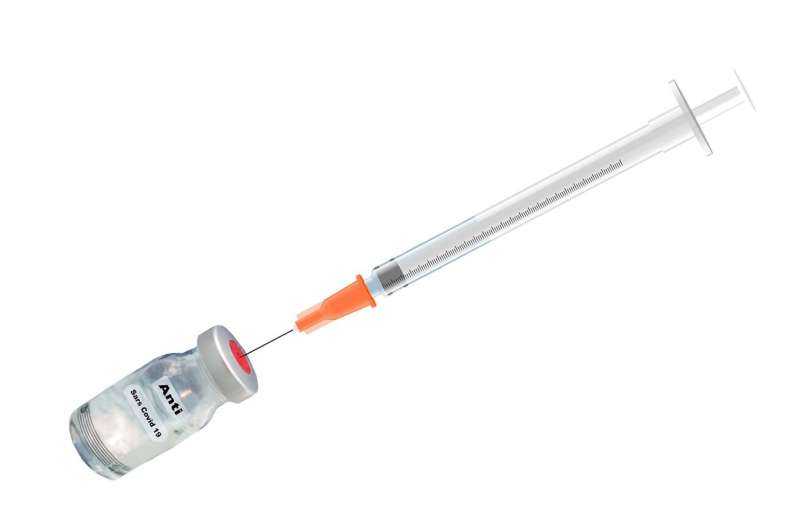
The 2021 flu season is hitting us at the same time that millions of Americans are considering a COVID-19 booster vaccination.
The FDA has endorsed a third dose of the Pfizer-BioNTech and Moderna vaccines by people with certain health conditions that compromise their immune systems, and for people age 65 and older.
In August, we spoke with Dr. Anita Skariah, UNC Health internist and pediatrician, to get answers to questions about the need for both flu shots and COVID vaccines. In short, she did recommend getting both the COVID and influenza vaccinations.
So we checked back in with her this week to see if recommendations are any different when it comes to getting a COVID booster shot.
We recap Skariah’s recommends regarding flu shots, along with new thoughts on COVID vaccines and boosters.
Do I need the flu shot if I’ve had the COVID vaccine?
Yes, the viruses are different and so are the vaccines.
Skariah explains: “It’s important to obtain the flu vaccine even if you have received the COVID vaccine. Neither will protect from the other—the flu vaccine will not protect you against Sars Co-V and the COVID vaccines will not protect you against influenza.
“Both are potentially deadly diseases that are preventable with vaccinations.”
Is it safe to get the flu shot if I’m getting a vaccine booster?
Yes. Skariah tells us that currently, CDC guidance is the same with the booster vaccine.
Will the flu shot interfere in any way with the COVID vaccine?
No, the flu shot should not interfere in any way with the COVID vaccine, said Skariah.
Can I get the flu shot and the COVID vaccine at the exact same time?
You can, but you may not want to.
“In the past, the CDC had recommended waiting 14 days between COVID vaccines and any other vaccines but now they feel this is unnecessary based on the evidence,” she said.
However, Skariah adds that even though taking the shots at the same time or close together is perfectly safe, one might want to space them out “as a matter of personal preference”—especially if worried about side effects.
“You may experience mild side effects from each of the vaccines, so if you wanted to separate the two vaccines by two weeks, that would also be reasonable.”
When do I need to start thinking about the flu shot?
Skariah says the time to start thinking about getting the flu shot is now.
“Typically we recommend vaccinating for influenza September through October to be proactive, but you can continue to do so throughout flu season,” Skariah said.
“It takes a few weeks to make antibodies once vaccinated, and the efficacy does diminish after six months. This is why we recommend obtaining the vaccine in September or October. In the past, we typically have seen increased influenza cases in October, increasing as the winter progresses and into early spring.”
According to the Centers for Disease Control and Prevention, influenza activity usually begins to increase in October, peaking between December and February (although flu season can last as late as May).
Could the flu shot give me the flu?
Skariah confirms that the flu shot cannot give you the flu.
“It is not a live vaccine unless you are given an intra-nasal (nasal spray) formulation, but even the live vaccine cannot cause influenza,” Skariah said. “Flu vaccines are made with killed virus or only a protein from the flu virus.”
What are the side effects of a flu shot?
You could feel bad after getting the flu shot, the same way you may have felt a reaction to the COVID vaccine.
That’s normal, Skariah tells us, but it’s not the flu.
“Sometimes after a vaccine you may mount a low grade fever, feel tired, or feel like you are ‘coming down with something,'” Skariah said.
“That is actually your immune system’s complex signaling system telling your body to fight off a potential invader. This is how the body builds up antibodies so that if you ever do encounter influenza your body is already armed and ready to fight it off.”
Who should get a flu shot? Is there any reason not to?
Unless you’ve had a severe allergic reaction to the flu shot in the past, it is recommended that everyone six months old and older get the flu shot, Skariah said.
“The only contraindication is if you had a severe allergic reaction to any component of the vaccine prior,” Skariah said.
Even those with egg allergies who may have previously avoided the flu shot can safely receive the shot now, she said.
“If the egg allergy was more severe than hives, it should be performed in a medical office, so they can monitor you briefly afterwards. There are also egg-free options available this year, as well, but ask your provider regarding these.”
Will the 2021 flu season be worse than last year?
Health officials do anticipate a more serious flu season this year when compared to last year.
Last year we had record-low flu-related deaths, thanks in large part to people wearing masks and spending most of flu season working (and socializing) from home.
Source: Read Full Article





